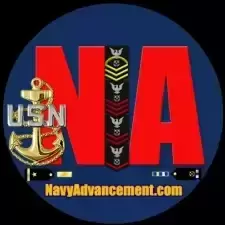FISCAL YEAR 2023 GENERAL MILITARY TRAINING REQUIREMENTS
-
👉 Latest News
-
ENLISTED APPLICATIONS TO THE UNITED STATES NAVAL ACADEMY CLASS OF 2030
By Tony, in Navy Enlisted to Officer Forum | LDO, CWO | Commissioning Programs
- 0 replies
- 913 views
-
- 0 replies
- 676 views
-
ACADEMIC YEAR 2026/27 ENLISTED CYBER MASTER OF SCIENCE DEGREE OPPORTUNITY AT NAVAL POSTGRADUATE SCHOOL
By Tony, in Navy College Education & Training Forum
- 0 replies
- 867 views
-
SEPT 2025 (CYCLE 268) ACTIVE DUTY AND TRAINING AND ADMINISTRATION OF THE RESERVE E5 AND E6 ADVANCEMENT EXAMS & RATING KNOWLEDGE EXAMS FOR ACTIVE DUTY BILLET BASED ADVANCEMENT
By Tony, in Navy Advancement Results, Exam, Bibs Forum
- 0 replies
- 1,773 views
-
BLENDED RETIREMENT SYSTEM CALENDAR YEAR 2026 CONTINUATION PAY RATES
By Tony, in Enlisted Pay, Benefits & Allowance Forum | Navy
- 0 replies
- 1,101 views
-

Recommended Posts
Join the conversation
You can post now and register later. If you have an account, sign in now to post with your account.
Note: Your post will require moderator approval before it will be visible.